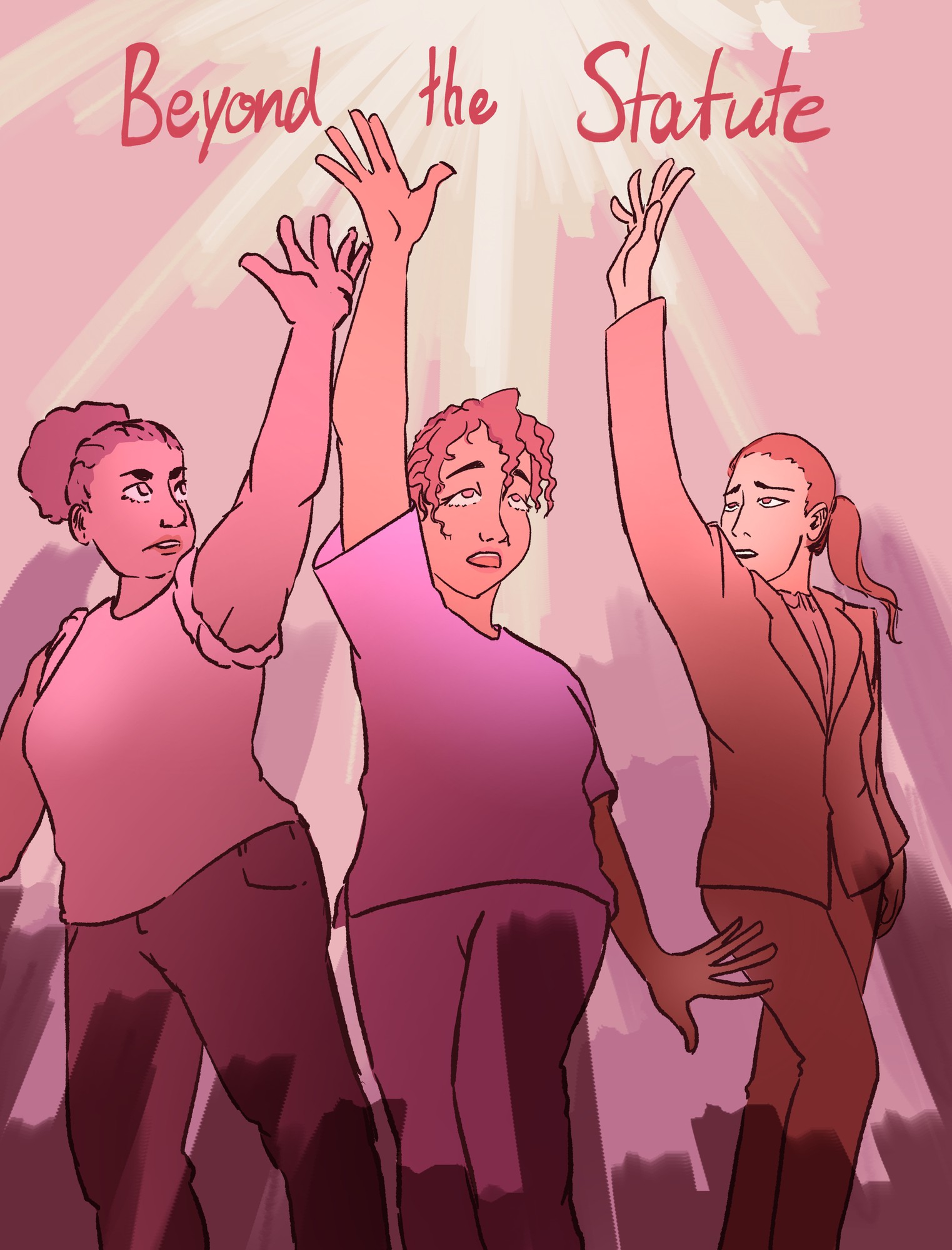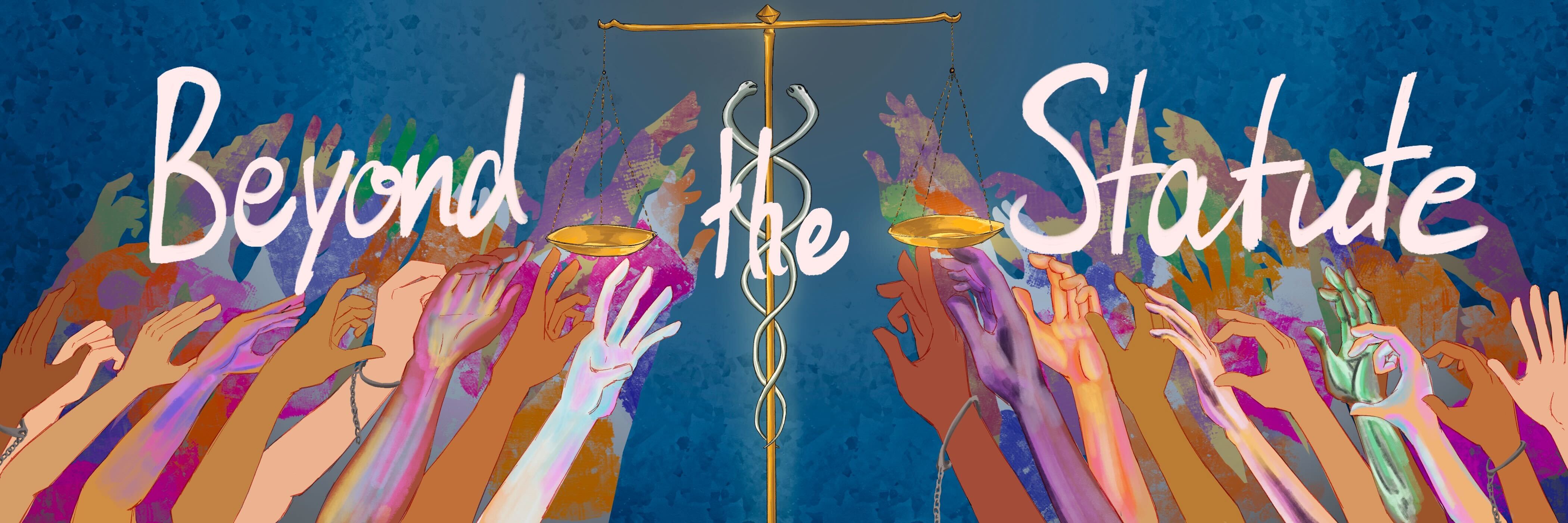Beyond the Statute: From young to old, women have been actively denied access to adequate health care

(Helen Juwon Park/Illustrations Director)
By Sierra Benayon-Abraham
Oct. 10, 2024 12:45 p.m.

“Beyond the Statute” is a series created by Sierra Benayon-Abraham, an assistant Opinion editor and third-year public health student. In these columns, she will be exploring various public health policies, laws and experiences that different marginalized communities encounter, along with the truths behind them. It is her goal to share the importance of understanding health care on a universal level while highlighting both the disparities and inequities that exist for distinct marginalized groups. With UCLA’s campus abound with students interested in health care, law and public policy, Bruins who have either an interest in or experience with the topic are welcome to submit op-eds or letters to the editor to be published as part of this series to represent the many facets of health care policy.
This post was updated Oct. 15 at 9:17 p.m.
After years of inequality, women worldwide are finally beginning to be seen as individuals with power and influence. Women are found in the courtroom, in the classroom, at home, in the operating room and in the cockpit.
However, to stand a chance at excelling in all of these places, a woman first and foremost needs to have access to equitable and nondiscriminatory health care.
Women continue to face a plethora of challenges in the medical community, including difficulty accessing resources, misrepresentation in biomedical and health-related research, an abundance of additional costs and more.
“The evidence for health inequities based on gender identity and sexual orientation is very well established,” Professor Lindsay Wiley, faculty director of UCLA’s Health Law and Policy Program, said in an emailed statement.
Female health care continues to be diminished, whether that be in medical research or through prejudiced social pressure, as a result of laws and policies enforced on the national and state levels that shape the workings of the medical community.
“There is increased unequal access to health care services for women because of cultural and social barriers, because of economic barriers and because of the fact that there’s a lack of services for reproductive health,” said Christian Nunes, president of the National Organization for Women – the largest grassroots group of feminist activists in the United States.
Whether as patients, caregivers or family representatives, women using the health care system often become burdened by what’s known as the “pink tax.”
The pink tax is a kind of gender-based discrimination in which goods and services marketed toward women typically cost more or are more difficult to obtain than analogous ones marketed toward men.
This doesn’t just include conditioner or deodorant. The pink tax also exists for essential medical treatments and services such as gynecological checkups and routine breast cancer screening appointments.
Compared to men, women in heterosexual marriages in the U.S. have a higher likelihood of being covered by health insurance as dependents. This puts women at greater risk of losing coverage should they choose to leave their husbands or get a divorce.
According to the Harvard Business School, women use more health care services – many of which are paid for out of pocket or not covered by health insurance – than men.
Even for those fortunate enough to afford private insurance, the out-of-pocket health care expenses that coincide with reproductive health alone can reach thousands of dollars.
“Federal, state, territorial, tribal and local governments should respect the health-related rights of women, girls and gender minorities – including their rights to reproductive and sexual autonomy – by refraining from interfering with access to health care and access to accurate health-related information,” Wiley said in the statement.
There are many individuals and organizations responsible for spreading misinformation about the distinctive rights and policies regarding female health care. There is a profusion of misinformation found on various social media platforms. For example, the myth that birth control pills cause cancer has made young women reluctant to pursue this type of birth control. Yet, according to Dr. Kimberly Dawn Warner, an OB-GYN at the Colorado Permanente Medical Group, birth control pills can actually lower a woman’s risk of certain types of cancers, including endometrial, ovarian and colon cancer.
When it becomes difficult to seek accurate health-related information, another obstacle for women to remain in a position of adequate and prosperous health arises.
“Women, having unique health care needs must deal with additional confusing legal barriers to access,” Julianna Gesiotto, staff attorney for the California Women’s Law Center, said in an emailed statement. “For example, someone who has just had a baby must often navigate time off work, paid leave laws, and lactation accommodation rights that most men do not need to become familiar with.”
Furthermore, women are at a greater risk of developing chronic conditions that need ongoing medical treatment. They are more likely to use prescription drugs – including for depression, which women are twice as likely to get diagnosed with than men. Perhaps the most obvious example is that women may require substantial care from a medical professional during their reproductive years.
With maternal mortality being the leading cause of death for girls ages 15-19 worldwide, Cathren Cohen, a staff attorney at the UCLA Law Center on Reproductive Health, Law and Policy, shed light on the troubling reality for minors seeking reproductive health care.
“One of the things that I work on is the ability of minors to access reproductive health care,” Cohen said. “That’s another space where we are seeing, unfortunately, successful attacks.”
Reproductive health care is imperative for young people. Lack of access, insufficient education and social stigma are just some of the contributing factors that limit adolescents’ access to reproductive health services.
While important to recognize the obstacles related to women’s health care laws and policies as a whole, it is crucial to acknowledge that these challenges are exacerbated for women of color and women of lower socioeconomic status. Furthermore, women who have a history of complex mental health disorders or who live in neighborhoods known to have weak health care delivery systems for female patients must overcome even greater challenges when seeking adequate medical attention.
Kim Bader, a board-certified OB-GYN affiliated with the Los Angeles General Medical Center, highlighted the inequities that persist for women in health care.
“We know there are tremendous inequities in prenatal care. We know that Black women have a much higher morbidity and mortality rate in pregnancy,” Bader said. “There are so many problems during the course of the pregnancy that could pop up at any time, but if you could at least address some of the basic health care issues that women in underserved patient populations have even before they get pregnant, it would be lovely.”
This isn’t to say that no legislative progress has been made for women when it comes to health care and reproductive needs. According to KFF, in 1978, the Pregnancy Discrimination Act ensured protection for pregnant women in the workforce. In 1993, the National Institutes of Health Revitalization Act mandated that clinical research include women. Finally, in 2010, the Affordable Care Act banned many discriminatory policies in women’s health insurance coverage.
Nonetheless, why is it still the case that many women face life-threatening risks during childbirth because of a lack of insurance coverage for costly procedures, such as an elective cesarean section?
Women’s rights and health are inherently intertwined. Yet policymakers often look out for one, while disregarding the other. Even though there are more female physicians now than ever before, much of medical research is still representative of male needs, even if women are now included in the studies.
“Many people think that because feminism has led to more rights and equality for women that now the job is done and inequities are behind us. But this is demonstrably false,” Gesiotto said in the statement. “When people do not even believe there is a problem, it makes working on these issues that much more important.”
It is no secret that access to quality health care is essential for living a healthy life. Yet what tends to be oversimplified or disregarded are the gender-based inequities that exist when it comes to seeking effective medical care, much of which is reinforced by inadequate public health laws.
“I always like to preface by saying equity has to happen before equality can happen,” Nunes said.
It is no secret that women will continue to use their knowledge and areas of expertise to positively influence the world around us.
Nonetheless, this begins by ensuring that the next generation of women are freed from gender-based discrimination in the form of health care and public health policy.





